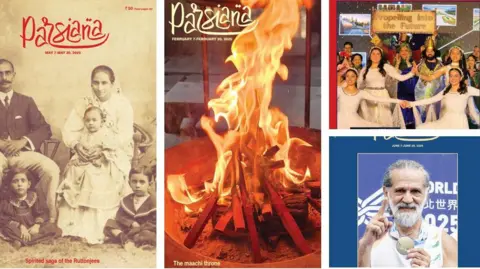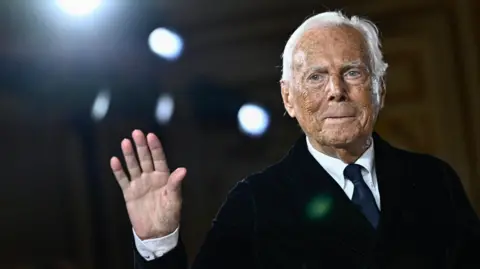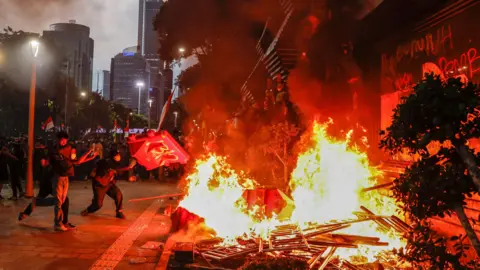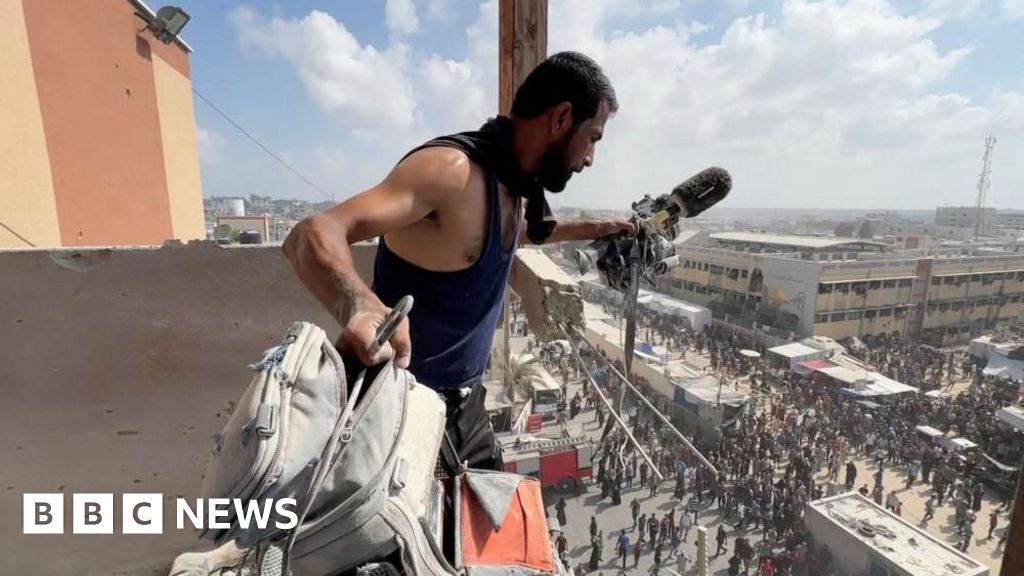April 21, 2025, Vatican City – The world collectively grieved as Pope Francis passed away on Monday at age 88 from a stroke, a day following his Easter blessing in St. Peter’s Square. His death, which took many by surprise, left an indelible mark on the Roman Catholic Church, stirring both admiration and anticipation for the future leadership of an institution he sought to mold into a more inclusive haven for the marginalized.
Mourners quickly gathered in St. Peter’s Square, grief palpable as many recalled Francis’s dedication to advocating for social justice, migration rights, and environmental stewardship. “We saw him yesterday,” lamented Marco Volpi, a passionate attendee. “This loss is unimaginable.” In the eyes of many, he was a voice for the disenfranchised, striving to transform the church into an entity that resonated amidst modern challenges.
The Vatican confirmed his death with Cardinal Kevin Farrell declaring, “At 7:35 this morning, the Bishop of Rome, Francis, returned to the house of the Father,” emphasizing a solemn yet hopeful view of the pope’s enduring legacy. During his pontificate, Francis actively addressed crucial issues such as climate change and the plight of migrants, even in his last public remarks. He believed in a church not physically cloistered but instead warmly embracing the world’s realities and personal hardships.
The mourning encompassed not only the present Catholic faithful but also world leaders who recognized his moral guidance. U.N. Secretary-General António Guterres hailed Francis as a "messenger of hope, humility, and humanity," pointing to the pope's numerous efforts to uplift marginalized voices, especially during his papacy characterized by a notable push for climate action through the 2015 Paris Agreement.
As the global community reflects on Francis's contributions—ranging from his sociopolitical stances to his warm interactions with everyday individuals—attention shifts toward the future. The process to elect a new pope, traditionally led by the College of Cardinals, is poised to commence in the coming days. Cardinal Farrell will temporarily oversee church functions until the conclave, where cardinals will convene for elections. Speculation is rife regarding the direction the next papal figure might take—will they continue Francis's progressive vision or revert to more conservative traditions?
The Vatican shared Francis's will, expressing wishes for a simple burial, reflective of his humble nature. A public viewing could start as early as Wednesday, allowing mourners to pay their last respects. The outpouring of grief, notably from various global faiths, advocates for a continued dialogue toward empathy, acceptance, and unity—a characteristic of Francis’s approach to leadership and spirituality.
In pondering the legacy left by Pope Francis, discussions swirl around not just who will lead, but how they will convey a message in a world increasingly divided by myriad social challenges. Francis's calling to elevate the voices of those on the margins remains as pertinent today as it did throughout his tenure, with many hopeful that his successor will continue that vital work.
Mourners quickly gathered in St. Peter’s Square, grief palpable as many recalled Francis’s dedication to advocating for social justice, migration rights, and environmental stewardship. “We saw him yesterday,” lamented Marco Volpi, a passionate attendee. “This loss is unimaginable.” In the eyes of many, he was a voice for the disenfranchised, striving to transform the church into an entity that resonated amidst modern challenges.
The Vatican confirmed his death with Cardinal Kevin Farrell declaring, “At 7:35 this morning, the Bishop of Rome, Francis, returned to the house of the Father,” emphasizing a solemn yet hopeful view of the pope’s enduring legacy. During his pontificate, Francis actively addressed crucial issues such as climate change and the plight of migrants, even in his last public remarks. He believed in a church not physically cloistered but instead warmly embracing the world’s realities and personal hardships.
The mourning encompassed not only the present Catholic faithful but also world leaders who recognized his moral guidance. U.N. Secretary-General António Guterres hailed Francis as a "messenger of hope, humility, and humanity," pointing to the pope's numerous efforts to uplift marginalized voices, especially during his papacy characterized by a notable push for climate action through the 2015 Paris Agreement.
As the global community reflects on Francis's contributions—ranging from his sociopolitical stances to his warm interactions with everyday individuals—attention shifts toward the future. The process to elect a new pope, traditionally led by the College of Cardinals, is poised to commence in the coming days. Cardinal Farrell will temporarily oversee church functions until the conclave, where cardinals will convene for elections. Speculation is rife regarding the direction the next papal figure might take—will they continue Francis's progressive vision or revert to more conservative traditions?
The Vatican shared Francis's will, expressing wishes for a simple burial, reflective of his humble nature. A public viewing could start as early as Wednesday, allowing mourners to pay their last respects. The outpouring of grief, notably from various global faiths, advocates for a continued dialogue toward empathy, acceptance, and unity—a characteristic of Francis’s approach to leadership and spirituality.
In pondering the legacy left by Pope Francis, discussions swirl around not just who will lead, but how they will convey a message in a world increasingly divided by myriad social challenges. Francis's calling to elevate the voices of those on the margins remains as pertinent today as it did throughout his tenure, with many hopeful that his successor will continue that vital work.






















